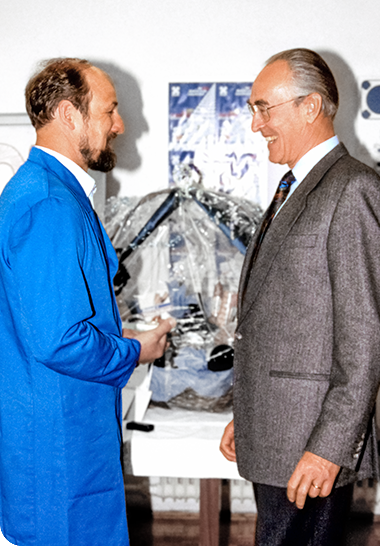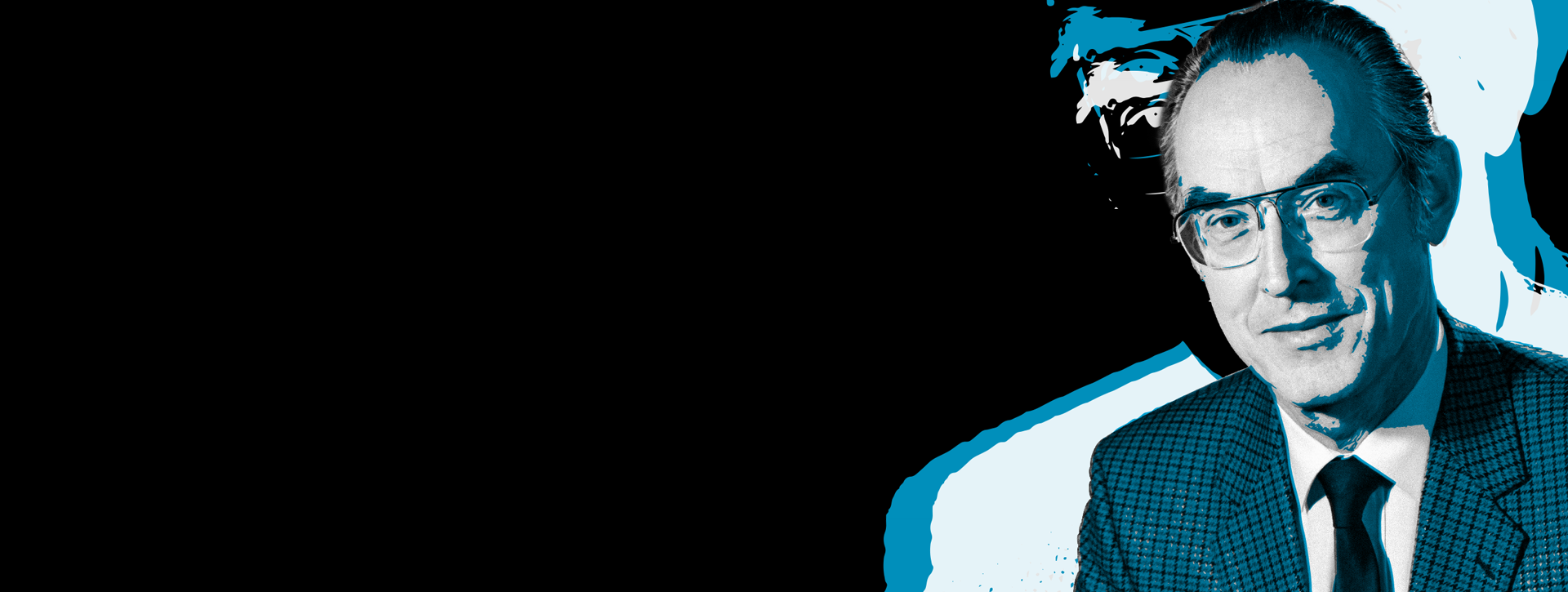
Egon Franke regularly presents his employees with gifts to mark anniversaries or birthdays – here the foreman Dieter Ulmer.
Egon Franke did not originally intend to follow in his father Erich's footsteps. Instead, he became a teacher at the primary and secondary school in Schorndorf – to which he gave his heart and soul. He therefore delayed fulfilling his father's wishes and joining the company for a long time. Finally, after an "agonising decision-making process", he took his leave of the teaching profession "with a heavy heart" in spring 1959.
Egon Franke had only been with the company for six years when his father died unexpectedly. He occasionally doubted that he would be able to fill his big shoes. However, the numerous offers to buy the company never materialised, mainly because of his "excessively high demands and contractual conditions imposed to protect the employees".
There are several reasons why Egon Franke continued to successfully develop the company despite initial doubts: He had the "pedantry" often attributed to teachers and therefore expected "precision and discipline in the execution of work". Plus, the people in the company were close to his heart. He was credited with a psychological skill with which he "harmonised the entire company." One concrete expression of his appreciation of employees was the profit-sharing scheme he introduced in 1969.
And finally, Egon Franke demonstrated strategic skill and from 1973 he reduced the company's high dependence on the licence partner Hoesch Rothe Erde Schmiedag AG (HRS). Under his direction, the product portfolio was expanded, in particular from 1975, to include linear guides – for which electronic control units were also offered from 1977 – along with precision positioning units. An additional Plant II was built and new areas of application were opened up for wire race bearings, especially for knitting machines. Last but not least, sales and marketing were also significantly expanded.
When Egon Franke stepped down from the Management Board at the end of 1981 due to illness, turnover had almost quintupled under his leadership compared to 1965 and the number of employees had doubled. He remained interested in the company and the people who worked there – and his advice on important decisions would be sought for decades to come. In 2000, he established the non-profit Erich Franke Foundation. Following his death in 2022, an obituary paid tribute to his "lively, mischievous sense of humour" and, above all, his outstanding "social conscience". //


